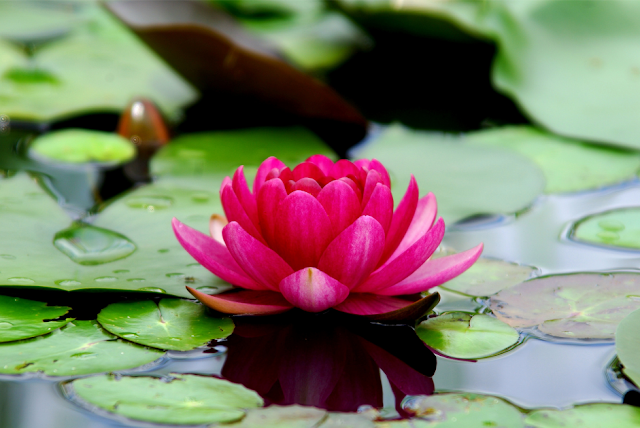Mysogyny (this is not a typo)
As I was writing this post, I accidentally misspelled misogyny as “mysogyny.” My own internalized misogyny (my-sogyny… get it?) has kept me in a constant state of self-criticism and self-denial.
This is a post for 15-year-old Anna, in all her angsty glory.
Over the past few months, the fog has cleared and I'm starting to see how negative comments about womanhood have seeped into my soul. I cannot unsee it, and it makes me feel physically ill.
I, like most women in America, have been constantly reminded through media, religion and social expectations, that being a woman means being second.
We see it everywhere. The jokes about momma having not eaten a hot meal in three years, about women doing the majority of the housework and childcare while working full-time and the ballooning rates of depression, anxiety and alcoholism among women.
Maybe mom drinks because she hasn’t had a hot meal in three years, or because she’s exhausted from caring for the kids and keeping the house spotless while meeting all her deadlines (while also being underpaid)?
Then there are even darker jokes. The jokes about women’s sexuality. The jokes about a woman saying she “has a headache” or is “too tired” to have sex tonight. The gross entitlement men hold over their wives and girlfriends while shrugging at the thought of their wife not eating a hot meal is astounding.
I’ve heard pastors describe men as “microwaves” and women as “crock pots” sexually. Not only is it strange to compare people to kitchen appliances, it’s demeaning.
I first learned that being a woman meant being a problem in this story of the Garden of Eden. As the story goes, God makes Adam and Eve and puts them in the garden of Eden. One day, a serpent tells Eve if she eats fruit from the tree, the Tree of the Knowledge of Good and Evil, she can be like God. Eve plucks a fruit from the tree and presents it to Adam. Adam takes the fruit. They eat.
In that juicy bite, Adam and Eve doomed us all to a life of sin and separation from God, as the Bible tells it.
For a long time, I believed Eve’s femininity was what caused the fall of man. It was Eve, after all, who presented the fruit to Adam. But how could I have forgotten that Adam willingly accepted the fruit? Eve did not coerce him, hold him down or force-feed him the fruit. Adam took it.
I’ve heard this story of Eve used to legitimize the constant dehumanization of women in the church. Eve must have been inherently stupid, because even though God told her to not eat from that tree, she was lured in by the snake. In turn, women must be led by a man.
Women can’t be trusted to make their own decisions. Women aren’t to be trusted in leadership. Women shouldn’t trust their own desires. Women’s words could be words straight from the Snakes’s mouth.
If you don’t believe me, or if you are a man and don’t believe me, listen to these words from the early Christian theologian Tertullian, “the Founder of Western Theology” as he addresses women in his book “The Apparel of Women.”
“Do you not believe that you are (each) an Eve? The sentence of God on this sex of yours lives on even in our times and so it is necessary that the guilt should live on, also. You are the one who opened the door to the Devil, you are the one who first plucked the fruit of the forbidden tree, you are the first who deserted the divine law; you are the one who persuaded him whom the Devil was not strong enough to attack. All too easily you destroyed the image of God, man. Because of your desert, that is, death, even the Son of God had to die.”
You are the one who opened the door to the Devil.
I had never read that Tertullian quote until a few weeks ago. I didn’t need to read it to know how women were viewed in churches that believe in “complementarianism.” I knew through teachings on modesty, through the dismissal of female teachers and pastors, through the expectation that a woman should desire no more than to serve children and serve a man.
Though I believe the story of the Fall is likely a mythical story to describe why people do bad things, this story has been used to degrade women and limit their ability to influence the ecosystem of the church.
In the Evangelical church, the ability of women to share their experiences and perspectives of the gospel has been limited to children and the ministry of young women and young wives. Women have not been given any role of authority nor any space to explain how certain theology has been used to legitimize domestic abuse.
When you tell young girls that their bodies are a threat to the salvation of men, you tell them that their bodies are evil. They are a threat to not only their own salvation but to the salvation of everyone who comes near them.
Another lovely Tertullian quote from the same book:
"You must know that perfect modesty, that is, Christian modesty, requires not only that you never desire to be an object of desire on the part of others, but that you even hate to be one. First of all, because the effort to please by external beauty does not come from a sound conscience, since beauty we know to be naturally the exciter of lust. Why, then, excite that evil against yourself? Why invite something to which you profess to be a stranger? Secondly, because we ought not to open the way to temptations. For, although by their vehemence--from which God guard His own--they sometimes lead to greater perfection, they certainly disturb the soul by presenting a stumbling block to it."
See, purity culture and modesty culture are not new ideas. This constant insistence that women cover up and pretend they don't exist has been around for a very long time. Men who seem to hate women for existing have been yelling about how bad our bodies are for what seems like forever.
Now I understand why I still look in the mirror with disgust. Why I see a cute outfit and instead opt for the baggy sweatshirt. Purity culture taught me very early that the best thing for me to be was to be invisible, and to try to cover up as much as I could in order to not be desired. "To hate to be an object of desire," in the words of Tertullian.
(If you care to read more about my purity culture experience, here's an op-ed I wrote).
I never felt like I could wear what I wanted or do what I wanted because God (and the church) would have something to say about it. That was the last thing I wanted.
All this internalized misogyny came together into this terrible thing I used to say.
I used to be 100% certain that I did not want any children. The idea of being someone's mom still scares me, but I also would love to have little rugrats with my curly hair and Ty Beahm’s hazel eyes running around my house one day.
I used to say “I hope I only have sons, because I don’t think I would know what to do with a girl.”
Now, I would jump at the chance to help a little girl know that she doesn’t have to fit the ridiculous gender roles assigned to her. She can climb trees and eat bugs in a princess outfit if that’s what she wants to do.
My own mother modeled this for me, yet I still fell for the gross woman-hating ideas I was handed by broader society.
My mom loves power tools and building things (she has many times asked for power tools for Christmas. I am not kidding. This woman would take a new miter saw over pearls any day.) I’m so grateful that she was my direct model of what it meant to be a woman. I think she’s influenced who I am--a dirt-loving lady who wants nothing more than to be outside every Saturday.
If you struggle with feeling like you’re less of a woman because you don’t fit the arbitrary gender roles assigned to you, this affirmation is for you.
My femininity is not a threat to men.
My femininity is not a threat to society.
My influence is a threat to the patriarchy that wants me to be silent. That is a good thing.
My femininity doesn’t make me evil, and God doesn’t think less of me because of the chromosomes in my DNA.
I am powerful, and my voice is important for creating a society where everyone can thrive.
I am allowed to be me, whatever “me” looks like. I don’t have to be a different me to make other people comfortable.




Comments
Post a Comment